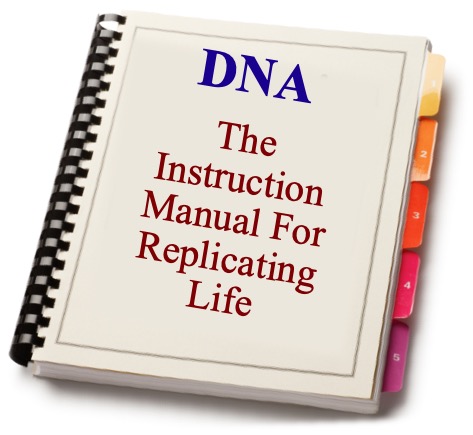The Duplicating Dictionary Evolution Analogy

Every living organism on the planet earth has its own unique DNA code, a code that is a set of instructions for the replication of that organism. No matter how many times a living creature replicates or reproduces, its DNA code always contains:
1. the same amount of information (resulting in a healthy, undamaged offspring)
2. the same information with some information missing or damaged (resulting in unhealthy offspring).
We see this phenomenon very clearly in the real world when babies are born with severe defects as a result of radiation or chemical damage occurring to their DNA code during pregnancy. Even if a child is born with an abnormality that is not considered a severe defect, such as an extra finger, we cannot honestly state that such a mutation was evidence of evolution. First of all, the DNA code may have already contained the information needed for a 6th digit. Also, the extra digit will never be a claw or anything else that was never a component found in the original organism. “Parts is parts” and design is design. You can’t get something from nothing. You can’t get a part that was NEVER present in the original DNA code. If I buy a model airplane kit, it only has so many parts in it. I can assemble them any way I want, but I can’t ever expect the finished model to include parts that were not in the original model airplane box.
And now for the dictionary duplication analogy…
If I take a 1,000 page dictionary apart, page by page, and then proceed to make a million copies of that dictionary, page by page, I will never end up with any uniquely NEW pages that were never present in the original dictionary. Some pages might get damaged or lost (i.e. think birth defects) or duplicated (i.e. think “identical twins”) in the process, BUT no new dictionary information will ever appear at the end of the copying process. And so it goes with DNA and all living creatures. You may want to believe that the impossible is possible… that you can get more information from out of nowhere, in your attempt to try to build a case for evolution, but you are not being honest with yourself or honest with science or honest with observable data out in the real world. — RM Kane